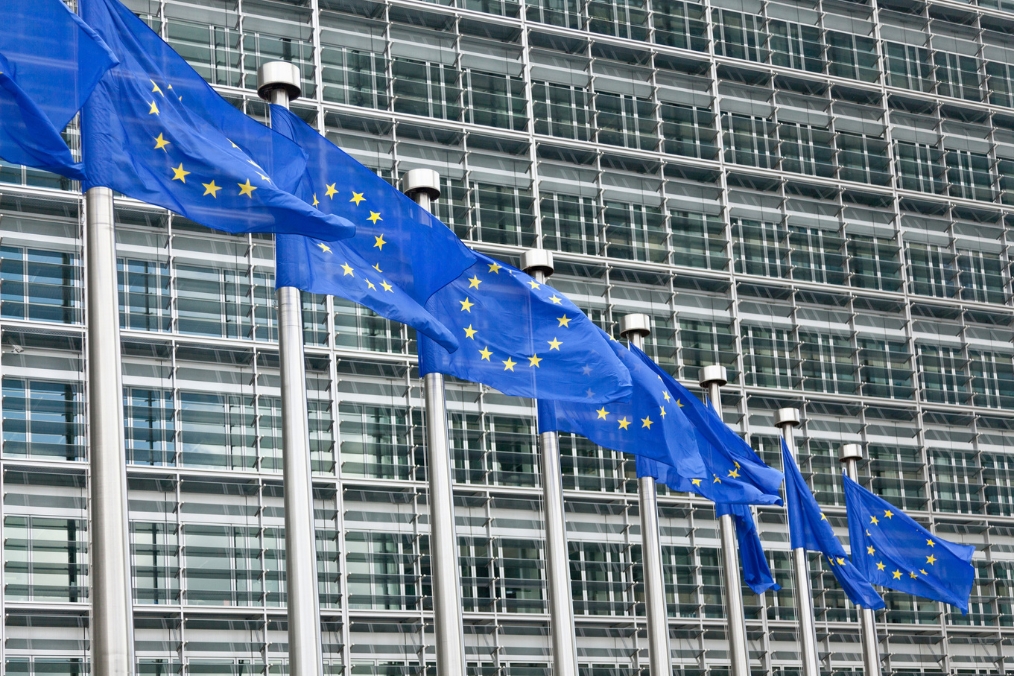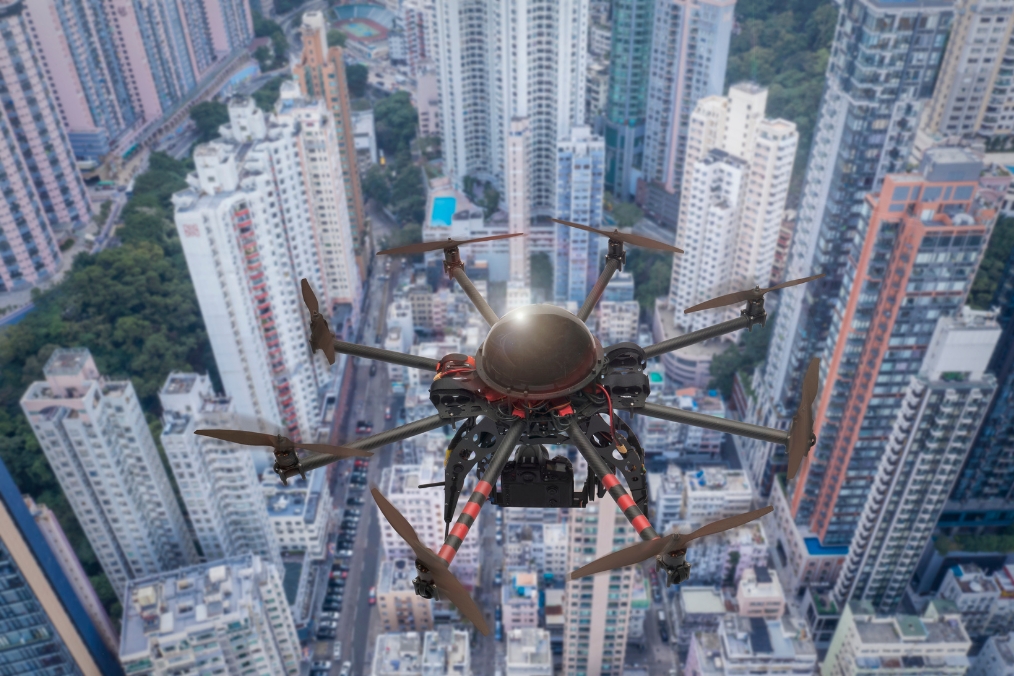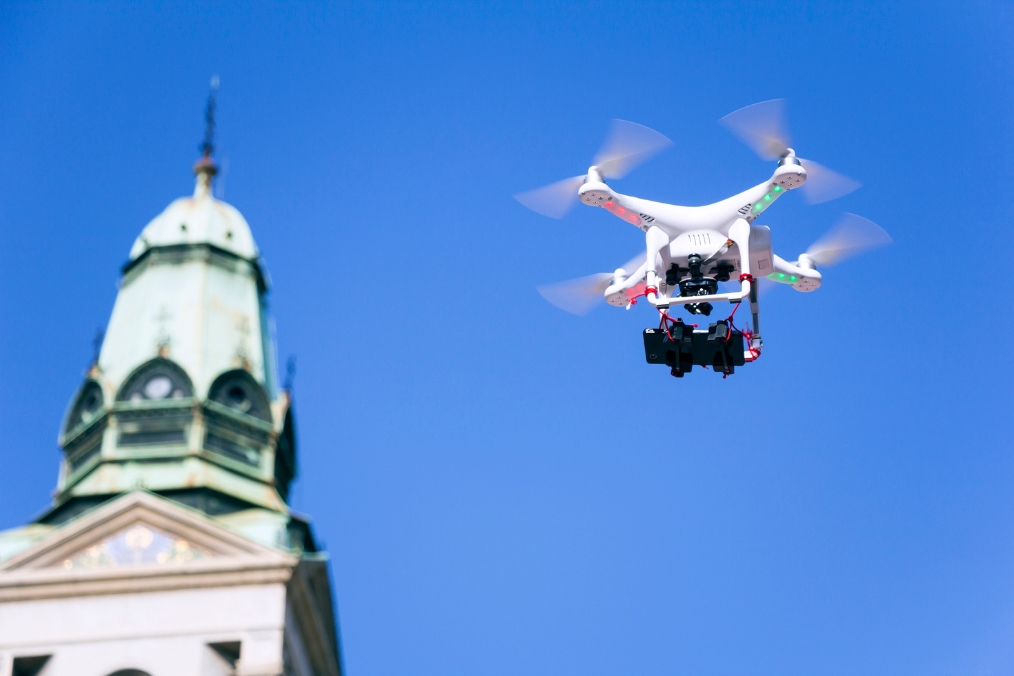On January 23, 2024, the European Parliament will host a debate on the use of drones in urban environments. Members of the Board of the Polish Chamber of Unmanned Systems will take an active part in the event.
Drones currently play a key role in modern technologies, and their potential in urban environments is enormous. Given the densely populated urban areas, the use of drones can bring numerous benefits. The proper use of these machines can help promote greener forms of transportation of goods and people, reduce greenhouse gas emissions, shorten delivery times and generate new jobs.

Benefits and challenges of drones in urban environments
Green transportation and emissions reduction
Drones can contribute to greener transportation in urban environments. Airborne “unmanned cabs” can revolutionize the way people are moved, reducing the number of traditional vehicles on the road and thereby reducing greenhouse gas emissions. In addition, drones can deliver goods more efficiently, reducing delivery times and reducing the number of traditional delivery vehicles on the streets while maintaining a safe distance and established urban order.
Creating new jobs
The development of drones in urban environments can create new jobs. The drone industry is growing rapidly, and the use of drones in various fields, such as goods delivery, building inspection and security monitoring, is opening up new employment opportunities. The creation of new jobs is an opportunity for both industry professionals and those interested in developing the technology.
Security and privacy
However, the deployment of drones in urban environments comes with some challenges. Security and privacy are key factors that must be considered when implementing these systems. Proper regulations and procedures must be in place to ensure safe drone flying and privacy protection for city residents.
Regulatory and technological challenges
Deploying unmanned flight systems in urban environments requires solving a number of regulatory and technological challenges. It is necessary to involve industry leaders and local representatives in solving these challenges.
Costly drone certification process
Drone industry leaders and local representatives are concerned about the prospect of a costly drone certification process. There is a need to engage in fixing regulatory shortcomings and identifying technological, infrastructural, financial and qualification gaps. Consultation with local and regional authorities is essential to establish standard drone operation scenarios and geographic and social constraints.
Public acceptance
Public acceptance is a key factor that requires additional strategies to normalize drone operations over cities. Consulting with residents and incorporating their opinions into the process of introducing drones into urban spaces is crucial. Introducing appropriate regulations and procedures can help increase public trust and acceptance of drones as part of the urban environment.
Military and political situation
When implementing drones in the urban environment, the military and political situation of the various regions of Europe should also be taken into account. For areas bordering military areas, special rules and procedures must be taken into account to ensure the safety of drone operations.

Debate in the European Parliament
On January 23, 2024. a debate on the use of drones in urban environments will be held at the European Parliament, organized by MEP Jan Olbrycht, who also serves as chairman of URBAN Intergroup. Among the guests invited to the debate is Luc Tytgat, currently acting Managing Director of EASA (European Aviation Safety Agency). Also taking part in the discussion will be representatives of the drone industry and local authorities, such as Kazimierz Karolczak, Chairman of the Board of the Upper Silesian and Zagłębie Metropolitan Area, Justyna Siekierczak and Mariusz Naumienko, members of the Board of the Polish Chamber of Unmanned Systems (PISB). In addition, participants include the Marshal of the Podkarpackie Region, Wladyslaw Ortyl, and the President of the Committee of the Regions, as well as Vassilis Agouridas of UIC2 (The Urban-Air-Mobility Initiative Cities Community). The debate will provide an opportunity to discuss various aspects related to the prospects and challenges of drone use in the urban context.
We are looking forward with great interest to the speeches of Mr. Luc Tytgat – Managing Director of EASA and Ms. Magda Kopczynski, Director General, DG Move, European Commission.
The debate is open to anyone interested in topics related to the widespread deployment of drones for flight in urban environments will begin at 2:00 pm in the Altiero Spinelli building and will last until 4:00 pm.
To participate, we encourage you to register via the link: https://lnkd.in/ezznGvma.
In addition, we are pleased to announce that until January 17 there is an opportunity to send suggestions and answers to the question that is the main theme of the debate: “How to effectively seize the opportunity for the widespread introduction of drones for flight in urban environments?”
If you have additional questions or need additional information, please contact the organizing team directly using the email address: zuzannaewa.tatara@europarl.europa.eu. We sincerely encourage you to actively participate in the discussion and share your valuable insights.
EVENT SCHEDULE
14:00 Opening – Jan Olbrycht – Member of the European Parliament, Chairman of URBAN Intergroup
14:05 Local and regional experience:
Kazimierz Karolczak, President of the Management Board of GZM Metropolis, Poland
Justyna Siekierczak, Mariusz Naumienko – Board Members of the Polish Chamber of Unmanned Systems
Ivo Cré, Director of Policy and Projects, POLIS
Deputy Mayor of Paris, TBC
Q&A-questions, discussion
14:50 Policy segment
Karima Delli MEP, Chairman of the Committee on Transport and Tourism, TBC
Luc Tytgat, Acting Executive Director of the European Union Aviation Safety Agency
Magda Kopczynska, Director General, DG Move, European Commission
Q&A – questions, discussion
15:50 Summary – Jan Olbrycht MEP, President of the URBAN Intergroup

Summary
The use of drones in urban environments has the potential to bring numerous benefits, such as green transportation, reduction of greenhouse gas emissions, job creation and increased delivery efficiency. However, drone deployment also comes with regulatory, technological and social challenges. It is necessary to involve industry leaders and consult with residents to find optimal solutions and realize the potential of drones over cities. The debate in the European Parliament is an important step in this process and provides an opportunity to discuss the issue.


